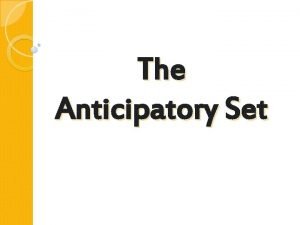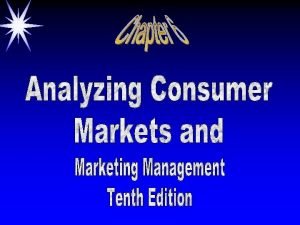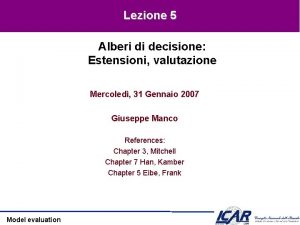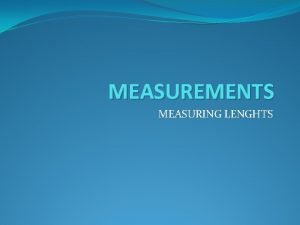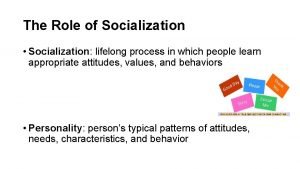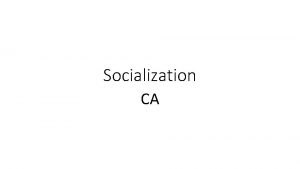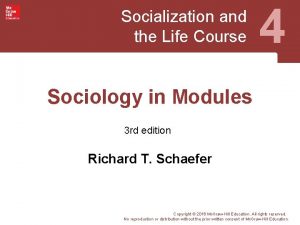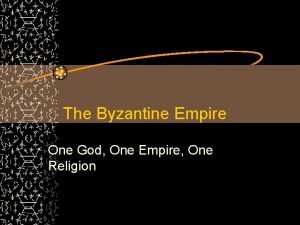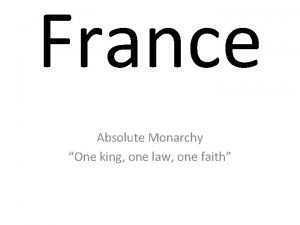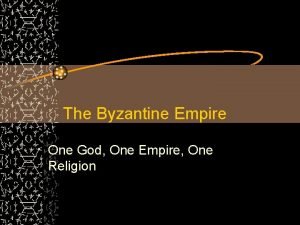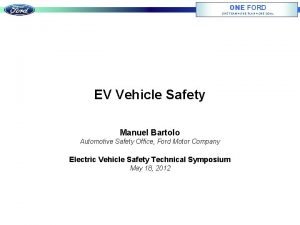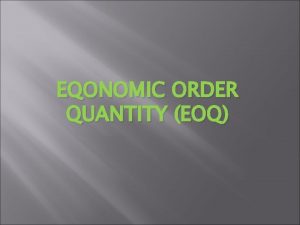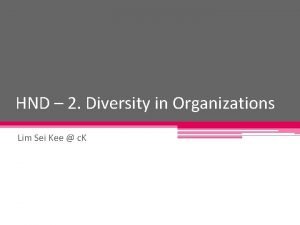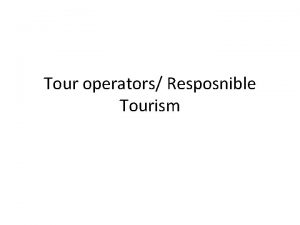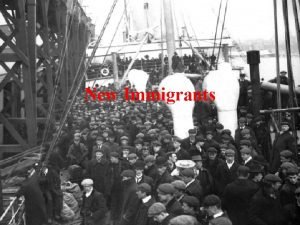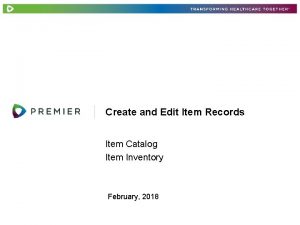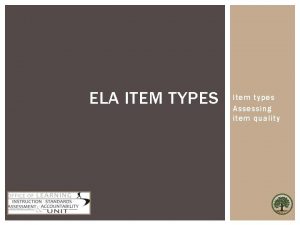Anticipatory Set With your partner choose one item










































![Cornelius [“Commodore”] Vanderbilt Can’t I do what I want with my money? Cornelius [“Commodore”] Vanderbilt Can’t I do what I want with my money?](https://slidetodoc.com/presentation_image_h2/4ddb4878d833f28d597d0c2f1b989f53/image-43.jpg)










- Slides: 53


Anticipatory Set • With your partner choose one item listed below and discuss how your life would be different if this item did not exist. v Electricity v Telephone v Car

Essential Question for Chapter 18 How did industrialization increase the speed of change?

Focus Question: What conditions spurred the growth of industry? TASK With your partner brainstorm reasons why you think the US experienced rapid industrialization after the Civil War (1865 -1915)

Section 1: A New Industrial Revolution Why Industry Boomed 1. Vast deposits of coal, iron ore, lead, oil, lumber etc. 2. Government policy v High protective tariffs (tax on imports) v Generous land grants and subsidies to railroads

U. S. Patents Granted 1790 s 276 patents issued. 1990 s 1, 119, 220 patents issued.

3. Steel v 1850’s Bessemer process = low cost steel. Cheaper and stronger than iron 4. Oil v 1859 Titusville, PA = new source of energy 5. Railroad Boom v. Carried people and goods to the West and raw materials to eastern factories

6. Inventors and inventions q The US government issues PATENTS – a document giving someone the sole right to make and sell an invention q A. Thomas Edison o “Wizard of Menlo Park” o light bulb, phonograph, motion pictures.

Thomas Alva Edison “Wizard of Menlo Park” established 1876

The Light Bulb

The Phonograph (1877)

The Ediphone or Dictaphone

The Motion Picture Camera

Communication Revolution • B. Alexander Graham Bell q 1876 sent the first telephone message q “Mr. Watson, come here. I want you. ” q By 1885, more than 300, 000 sold q Organized AT&T Co.

Alexander Graham Bell Telephone (1876)

Devices for Home and Office • 1868, Christopher Sholes = “Type-Writer” • 1888, George Eastman = lightweight camera

Model T Automobile Henry Ford I want to pay my workers so that they can afford my product!

C. Henry Ford q 1913, Ford introduced the ASSEMBLY LINE to mass produce affordable cars q 1917, more than 4. 5 million Americans owned cars

The Reorganization of Work The Assembly Line

“Model T” Prices & Sales

D. The Airplane Wilbur Wright Orville Wright Kitty Hawk, NC – December 7, 1903

Military Use of Airplanes WW I (1914 -1918)

Closure • Teach your partner what you have learned in class today about the SIX conditions that spurred the growth of industry (1865 – 1915)

Section 2: Big Business & Organized Labor • Focus Question: How did big business change the workplace and give rise to labor unions?

Bell Ringer Questions • If you could start a business what would it be? • What does it take to be successful in business?

New Ways of Doing Business Entrepreneur – someone who sets up new businesses to make a profit 1. Corporation – businesses owned by many investors (stockholders). You risk only what is invested. 2. Banking – banks lent huge amounts of capital (money) to corporations allowing them to grow faster.

Growth of Big Business Monopoly – a company that controls most or all business in a particular industry

Your Task q Watch the video clip on Andrew Carnegie q With your partner discuss the questions on your guided notes handout q. How did Carnegie make his fortune q. What is his Gospel of Wealth q. What did he spend much of his fortune building q https: //www. youtube. com/watch? v=9 vuq. R 3 e 0 u. KU (Carnegie and Rockefeller, a Short Documentary, Carnegie 5: 45 -11 min)

Closure/Exit Ticket • Construct three to five meaningful sentences describing what you learned or found interesting during todays class.

A. Andrew Carnegie $ Poor Scottish immigrant $ Made his fortune by Gospel of Wealth controlling all aspects of the STEEL industry $ “Gospel of Wealth” Wealthy should act as “trustees” for their “poorer brethren. ” $ Built hundreds of libraries

The Gospel of Wealth: Religion in the Era of Industrialization $ Wealth no longer looked upon as bad. $ Viewed as a sign of God’s approval. $ Christian duty to accumulate wealth. $ Should not help the poor.

Iron & Steel Production

U. S. Corporate Mergers

B. John D. Rockefeller • $ Son of a peddler • $ Age 23 invested in an oil refinery • $ Brilliant entrepreneur who crushed his competition • $ 1882, created the Standard Oil Trust • Trust – a group of corporations run by a single board of directors



Debate Over Trusts Are they a threat to the free enterprise system in which privately owned businesses compete freely?

Robber Barron vs. Captain of Industry • Robber Barron • Captain of Industry • Unfairly eliminated competition • Used their wealth to influence politicians • Exploited resources and workers • Built up the economy • Created jobs • Allowed them to lower their prices • Gave back to society (philanthropy)

Standard Oil Co.

The ‘Robber Barons’ of the Past

The ‘Bosses’ of the Senate

The Protectors of Our Industries
![Cornelius Commodore Vanderbilt Cant I do what I want with my money Cornelius [“Commodore”] Vanderbilt Can’t I do what I want with my money?](https://slidetodoc.com/presentation_image_h2/4ddb4878d833f28d597d0c2f1b989f53/image-43.jpg)
Cornelius [“Commodore”] Vanderbilt Can’t I do what I want with my money?

Modern ‘Robber Barons’? ?

Changes in the Workplace q 1. Large factories replaced small factories (impersonal) q 2. Large numbers of women and children entered the workplace q 3. Long Hours q 4. Low wages q 5. Dangerous conditions – Triangle Shirtwaist Factory fire, 1911

Child Labor

Workers Organize • Knights of Labor 1869 • Terence Powderly • Included ALL workers; skilled unskilled, women, African Americans, immigrants • Rejected strikes • Held public rallies • 1886 Haymarket Square rally erupted into violence. Public Opinion turned against unions • Rise of American Federation of Labor 1886 • Samuel Gompers • Skilled white , males workers only (difficult to replace) • Collective Bargaining – unions negotiate with management for workers as a group • Believed in strikes if all else failed

Haymarket Square

Samuel Gompers • Show me the country that has no strikes and I'll show you the country in which there is no liberty.

Women in the Labor Movement • Mary Harris Jones • (“Mother Jones”) • Traveled country campaigning for unions • Support for striking miners • Called attention to plight of children in textile industry

Homestead Strike • http: //www. history. com/videos/andrew-carnegieand-the-homestead-strike#andrew-carnegie-andthe-homestead-strike • (Carnegie, Homestead Strike, 3: 30 min) • Steel Industry Ø Long Hours Ø Low Pay Ø Dangerous Conditions Ø Anti Union

Bitter Strikes 1893 = a sever economic downturn -> businesses fired workers and slashed wages -> wave of violent strikes George Pullman (Pullman Strike) q Manufactured railroad cars q Cut workers pay 25% q Refused to lower rents on company-owned housing q Railroad workers went on strike q President Cleveland sent in troops and federal marshals. Two strikers killed q By 1900, only 3% of Americans were in unions

Closure • Exit Ticket • Write 3 -5 sentences explaining why unions were necessary.
 Choose the corect item
Choose the corect item Choose your partner carefully
Choose your partner carefully Definition of anticipatory set
Definition of anticipatory set Anticipatory set
Anticipatory set What is an anticipatory set
What is an anticipatory set Define anticipatory set
Define anticipatory set Total set awareness set consideration set
Total set awareness set consideration set Training set validation set test set
Training set validation set test set Item-item yang berkaitan ditampilkan bersama
Item-item yang berkaitan ditampilkan bersama Choose the correct iten
Choose the correct iten B underline the correct item
B underline the correct item Choose the appropriate metric unit to measure each item
Choose the appropriate metric unit to measure each item Prepositions and phrasal verbs choose the correct item
Prepositions and phrasal verbs choose the correct item Choose the corect answer
Choose the corect answer Act 1 scene 1 hamlet
Act 1 scene 1 hamlet Purify my heart brian doerksen
Purify my heart brian doerksen Looking glass self examples
Looking glass self examples Example of anticipatory socialization
Example of anticipatory socialization Types of socialization
Types of socialization Example of anticipatory socialization
Example of anticipatory socialization Anticipatory guidance for elderly
Anticipatory guidance for elderly Resocialization sociology definition
Resocialization sociology definition Sue marsden
Sue marsden Anticipatory guidance for autism
Anticipatory guidance for autism Anticipatory governance definition
Anticipatory governance definition Anticipatory care definition
Anticipatory care definition Leaflet anticipatory guidance
Leaflet anticipatory guidance What is anticipatory bail
What is anticipatory bail One god one empire one religion
One god one empire one religion One one one little dog run
One one one little dog run One king one law one faith
One king one law one faith Byzantine definition
Byzantine definition One ford plan
One ford plan See one do one teach one
See one do one teach one One price policy
One price policy Twelfth night speeches
Twelfth night speeches See one do one teach one
See one do one teach one One vision one identity one community
One vision one identity one community Graphic organizer with the aims of la liga filipina
Graphic organizer with the aims of la liga filipina Count your blessings name them one by one song
Count your blessings name them one by one song Rol in inventory
Rol in inventory Stop testing your partner
Stop testing your partner Discuss these questions with a partner
Discuss these questions with a partner Your partner is a reflection of you
Your partner is a reflection of you Discuss the following questions
Discuss the following questions Who you meet last weekend
Who you meet last weekend Your romantic partner always uses the same shampoo
Your romantic partner always uses the same shampoo Your reliable partner slogan
Your reliable partner slogan Plural of understand
Plural of understand Games to play with family at home
Games to play with family at home 20 questions game
20 questions game Nine basic physical abilities
Nine basic physical abilities Discuss these questions with your partner
Discuss these questions with your partner Give us your hungry your tired your poor
Give us your hungry your tired your poor


